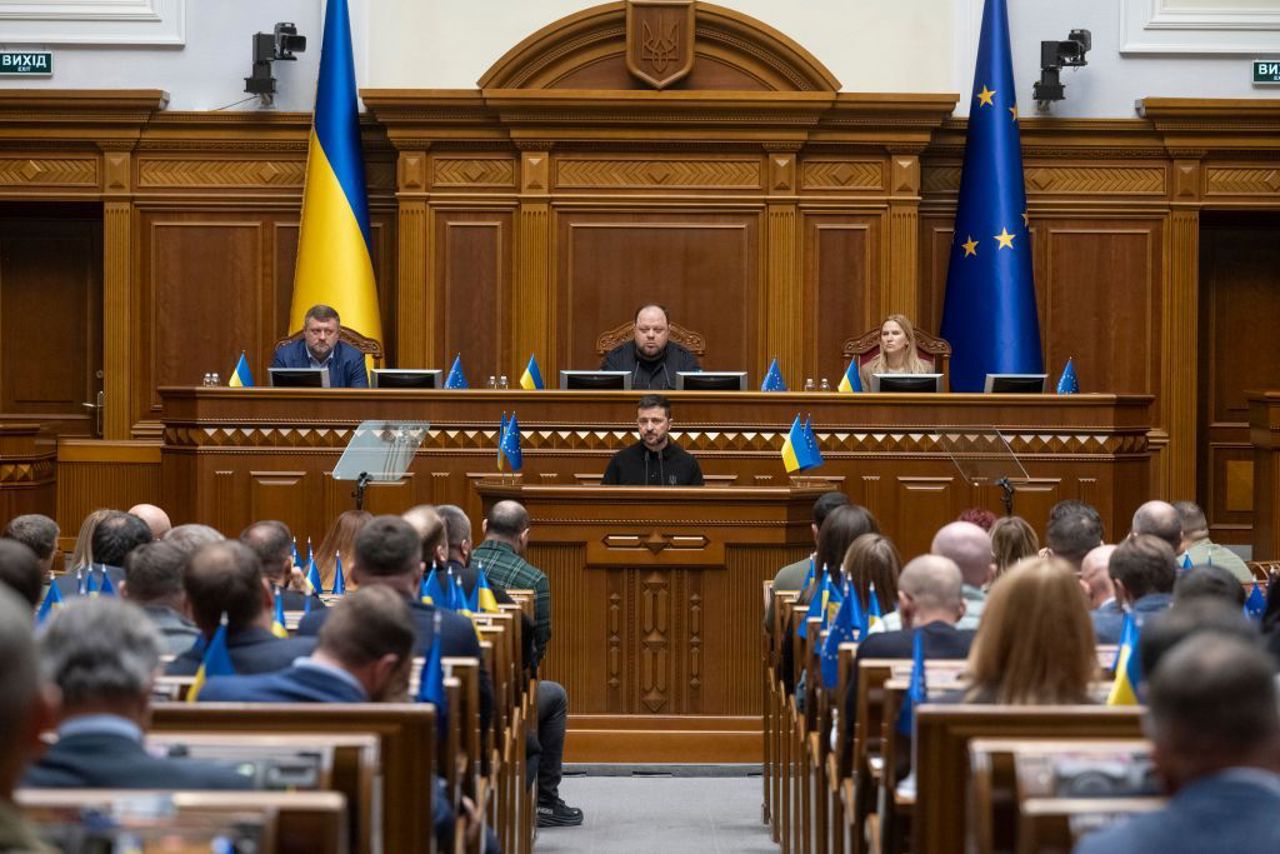Ukraine removes Russian and Moldovan from protected languages
On December 24, the Ukrainian government approved a draft law removing Russian and Belarusian from the list of protected languages in Ukraine.
The new list outlined in the law, which still requires approval by the "Verkhovna Rada" (parliament), no longer includes the "Moldovan language," which has been replaced by Romanian among the protected languages under the provisions of the European Charter for Regional or Minority Languages.
The European Charter for Regional or Minority Languages, adopted by the Council of Europe, was signed by Ukraine in 2003. It calls for the protection of languages such as Belarusian, Bulgarian, Gagauz, Greek, Hebrew, Tatar, Moldovan, German, Polish, Russian, Romanian, Slovak, and Hungarian.
Unlike Ukraine, which has already ratified the charter, Chișinău has signed it but not yet ratified it.
When it comes to minority rights, democracy does not always align with expectations. For instance, countries like Romania, Bulgaria, and North Macedonia, often considered peripheral within Europe, have systematically integrated their key minorities into government structures, easing significant tensions. Conversely, in countries like France, it would be unthinkable and legally prohibited to form a party based on ethnic lines, as seen with Romania’s Democratic Alliance of Hungarians (UDMR) or the Turkish party in Bulgaria.
North Macedonia is the only country where Romani and Aromanian (Vlach) have been recognized as official languages for use in administration and education in areas where these communities exceed 20% of the population.
In contrast, countries such as Greece, France, or Belgium do not officially recognize minorities. Belgium, Greece, and the Baltic States have not signed the charter. The charter establishes a baseline guaranteeing minorities in ratifying states the right to use their language not only in public but also in administration and education.
Surprisingly, only 20 out of the 27 European Union member states have ratified the charter. For example, in Belgium, Francophones living in Flanders lack schools in their language and are prohibited from using French in administrative interactions. Speaking French in a courtroom in Flanders is strictly prohibited, and the presence of a sworn translator is mandatory, even if all parties are fluent in French.
Similarly, Polish citizens in Lithuania cannot have their names recorded in official documents, such as passports, with Polish characters like ł or ę, as these letters do not exist in the Lithuanian alphabet.
In addition to Belgium, six other EU member states have refused to sign the charter, including Ireland, Bulgaria, the Baltic States, and Greece. Greece is a unique case, as it does not officially recognize the existence of national minorities. France has signed the charter but has not yet ratified it, mirroring the situation in Moldova.
It is worth noting that Ukraine’s approach to the Russian language parallels that of North Macedonia regarding the Albanian language. In both cases, the governments in Kyiv and Skopje have sought to legally diminish the prominence of these languages, treating their speakers as minorities similar to others. A comparable situation exists for Russian speakers in the Baltic States, all three of which have refused to sign the European Charter for Regional or Minority Languages.
Under the new law, Ukraine now recognizes the following minority languages: Bulgarian, Gagauz, Tatar, Greek, German, Polish, Romanian, Slovak, Hungarian, Czech, and Hebrew.
Noticeably absent are Russian, Belarusian, and the "Moldovan language," which has been replaced with the term "Romanian language" as per a decision adopted by the Ukrainian government in November 2023.
Author: Dan ALexe
Translation by Iurie Tataru




